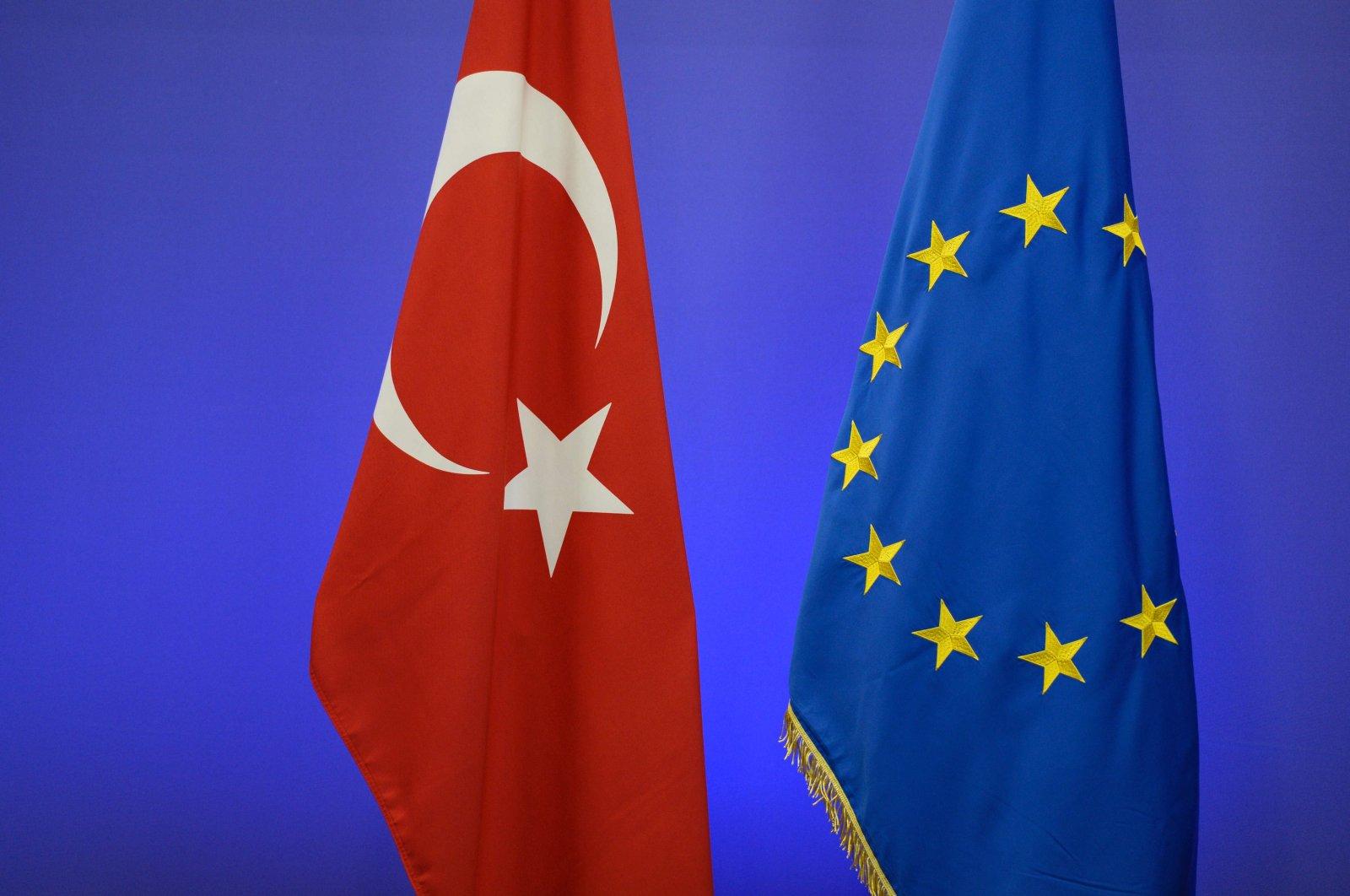FM Çavuşoğlu to meet with EU ambassadors as part of Ankara's initiative to turn new page

Turkey is preparing to ramp up diplomatic relations with European countries following Ankara's recent declaration that it intends to turn a new page with the European Union, ushering in a positive era. In line with the initiative, Foreign Minister Mevlüt Çavuşoğlu is scheduled to hold a meeting with EU ambassadors on Tuesday in the capital Ankara.
Most recently, President Recep Tayyip Erdoğan on Saturday reiterated that Turkey prioritizes the EU in its agenda and sees its future in Europe. Turkey hopes to start fresh with the bloc in the new year, Erdoğan said in a statement, adding that interactions with the EU in 2020 were unproductive due to the artificial problems created by certain EU members.
Other than the bilateral ties between Brussels and Ankara, four topics are expected to dominate the agenda: updating the migrant deal with the EU, visa liberalization for Turkish citizens, updating the customs union with the EU and Turkey's proposal for an Eastern Mediterranean conference.
Later in the day, President Erdoğan is expected to receive the EU ambassadors.
Hosting more than 3.5 million Syrians, Turkey signed a deal with Brussels in 2016 to reduce the influx of migrants taking the dangerous Aegean Sea route to Europe.
Under the deal, Turkey was promised 6 billion euros ($6.77 billion) in financial aid, which was initially designed to be given to the country in two stages and to be used by the Turkish government to finance projects for Syrian migrants. Visa freedom for Turkish citizens was also a perk of the agreement and the customs union was to be updated.
The customs union is a trade agreement between Turkey and the EU that came into effect on Dec. 31, 1995, following a March 6, 1995, decision by the European Community-Turkey Association Council to establish a customs union that allows goods to travel between the two entities without customs restrictions. The customs union does not cover essential parts of the economy such as agriculture, services or public procurement.
In exchange, Turkey agreed to discourage migrants from entering Europe via the Aegean Sea by cracking down on human traffickers and improving the living conditions of Syrian migrants living in Turkey. Despite Turkey significantly curbing migration traffic to Europe, the EU has not kept up its side of the deal.
When it comes to Ankara's disagreements with Athens over hydrocarbon resources in the Eastern Mediterranean, the EU has sided with its member, Greece. Last month, the EU was prepared to take punitive action against Turkey over its dispute with Greece and the Greek Cypriot administration over rights to offshore resources in the Eastern Mediterranean but decided to postpone the move until March, despite Paris encouraging sanctions against Ankara.
 Latest news
Latest newsForeign Interests and Native Fatigue: Iran on the Brink
11.Jan.2026
“Muslim NATO”: Turkey’s New Strategic Vector
10.Jan.2026
The Use of the “Oreshnik” Missile and a New Phase of Escalation Around Ukraine
09.Jan.2026
Solidarity Deferred: Croatia and Romania’s Dangerous Retreat
08.Jan.2026
Azerbaijan’s Eurasian Initiative: Ambitions, Challenges, and Doubts
07.Jan.2026
The Great Rotation: Personnel Reshuffles in Ukraine’s Leadership
06.Jan.2026
The United States Did Not Confirm an Alleged Ukrainian Attack on Putin’s Residence
05.Jan.2026
The Trans-Caspian Fiber Optic Cable: A Digital Milestone Connecting Europe and Asia
04.Jan.2026
Georgia Hopes for a Review of Venezuela’s Recognition of Abkhazia and South Ossetia Amid Ongoing Crisis
04.Jan.2026
Ukraine’s Allies Discuss Security and the Future of a Peace Settlement
03.Jan.2026

 14 Jan 2026
14 Jan 2026








